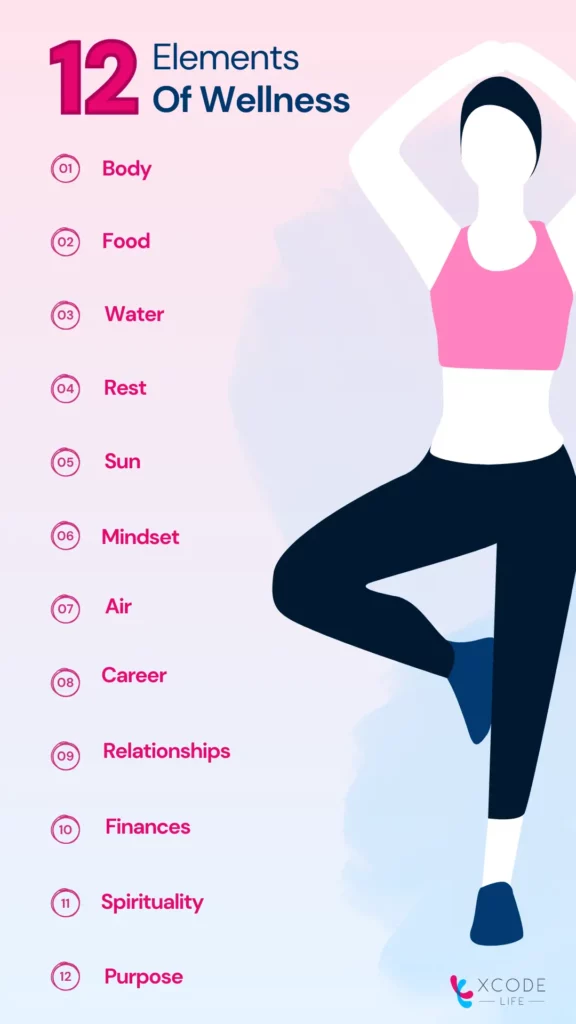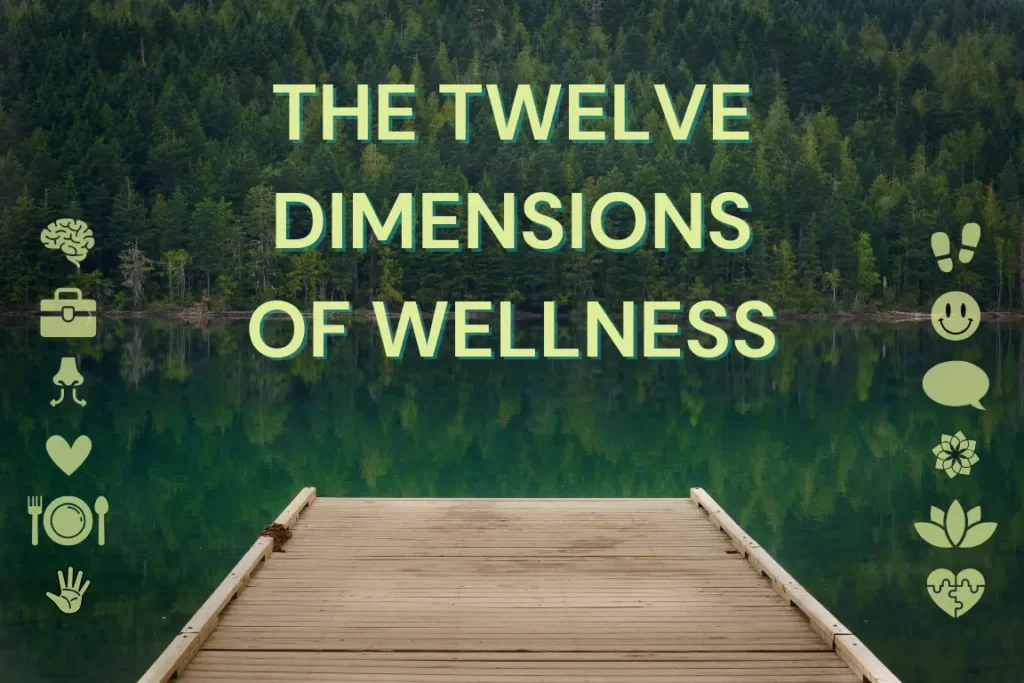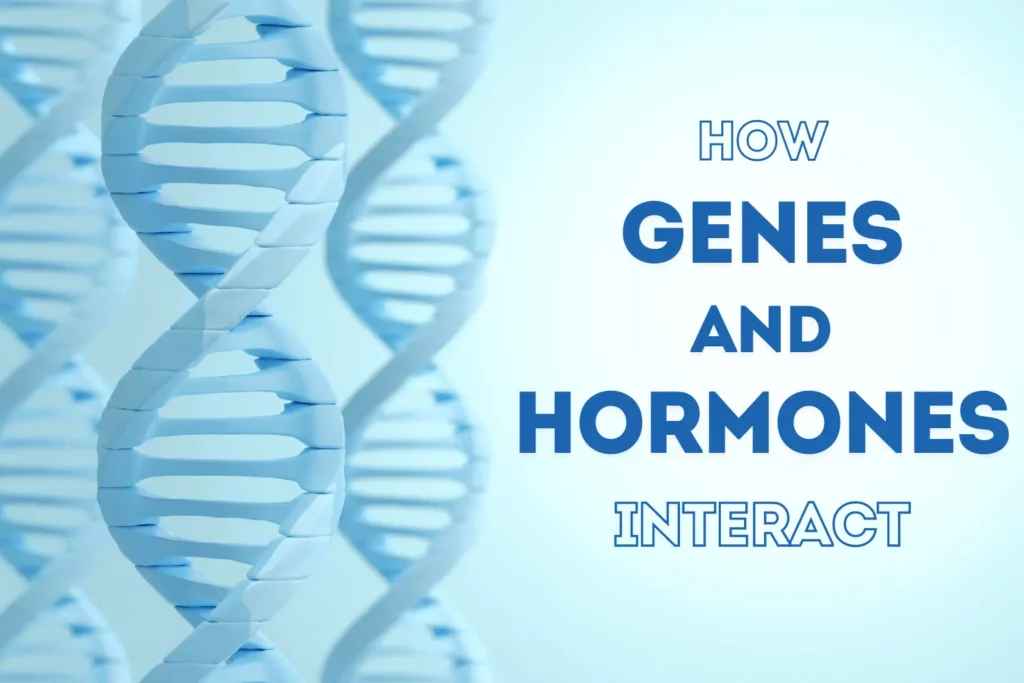We often talk about being "well," but what does that mean? Do we just mean not being sick? Or is there something more to it than that? Many people mix up the ideas of "health" and "wellness," but they're different. Health is like your body's physical condition – are you disease-free? Wellness is a much bigger picture. It's about your overall well-being, including your physical health, mental and emotional health, social connections, and how you feel about your life. When we understand the little differences between health and wellness, we can make better choices that help us feel good in every way, not just physically. It gives us more control over how we live and how happy we are.
What Is Health, And What Is Wellness?
The World Health Organisation (WHO) defines health as "a state of complete physical, mental, and social well-being and not merely the absence of disease or infirmity."
This means that health is not simply the absence of illness.
Good health encompasses physical fitness, mental stability, and everyday societal interactions.
It is a holistic state that allows individuals to live a fulfilling life.
WHO defines wellness as "the optimal state of health for individuals and groups."
Wellness is the active pursuit of good health and a meaningful life.
It encompasses actions and behavior that help you reach your fullest potential.
The Elements Of Health
The two elements of health are:
- Physical health: This is the cornerstone of being healthy. Focusing on physical health means being in tune with your body and providing nourishment through a balanced diet and exercise. It also means understanding the symptoms and sensations of any underlying illness and working with your healthcare provider to identify any possible issues.
- Mental health: Mental health is crucial for our overall health. It includes making sound decisions, maintaining relationships, handling stress, and coping with life's daily challenges.
The Elements Of Wellness
Wellness is an idea that focuses on a broad spectrum of different elements.
The 12 elements of wellness are:
- Body: This element involves how you care for your body, including the foods you eat to keep it healthy, daily movement and exercise, and enough rest. This also includes the products you use on your skin and hair and your supplements.
- Food: Food is an important aspect of your body's appearance and feelings. Being mindful of what food you eat, which foods you enjoy, and how to prepare nutritionally dense foods is all part of wellness.
- Rest: Prioritizing rest is crucial for your overall health. When you take time to rest, relax, and get a good night's sleep, your body gets to heal and repair. Getting adequate rest is essential for productivity and energy.
- Water: Our bodies are composed of 70% water. Maintaining hydration is key to good health. It also helps flush out toxins. Like the food you eat, the liquids you drink can impact your health in various ways.
- Sun: Sunlight enables you to get vitamin D, also known as the sunshine vitamin. This vitamin regulates important metabolic functions in the body. The sun governs the sleep-wake cycle of the body. Getting enough sunlight can improve your mood and physical health.
- Air: Breathing in clean air is beneficial for our health. With rising global temperatures and pollution levels, it's hard to control the air quality everywhere you go, which is impossible. However, you can regulate the air inside your home and workplace.
- Mindset: Having a stress-free life is becoming increasingly unlikely. However, you can easily overcome daily challenges by having a positive mindset and attitude toward life. Wellness involves working towards building a positive mindset.
- Career: Our work becomes an integral part of our identity. Spending long hours of the day working in a toxic environment or doing work that you don't enjoy can burn you out. Breaking out of this cycle and choosing to do work you enjoy is essential for your well-being.
- Relationships: Interpersonal relationships greatly affect your overall health and happiness. When you are surrounded by people who love and support you, you start to feel more positive and comfortable. Think about how you engage with people and how you structure your relationships.
- Finances: Although it's a topic that most people don't want to discuss, being financially secure helps you become empowered to make your own choices in life. Focusing on improving and managing your finances can have a substantial positive impact on your life.
- Spirituality means different things for different people, but it can also mean mindfulness and a sense of belonging. Spiritual practices can be a religious gathering, joining a community of like-minded individuals, or practicing mindfulness techniques.
- Purpose: Having a purpose in life keeps you grounded and focused on your goals. Although an abstract concept, purpose makes your life meaningful.

What Is The Difference Between Health And Wellness?
The main difference between health and wellness is the active process of achieving health, which is the goal.
Health is your predisposition to developing certain diseases like type 1 diabetes, hypertension, or cardiovascular diseases.
Wellness is the daily choices you make, like eating a balanced and taking the time out for exercise.
While you cannot always choose health, you can actively pursue wellness.
Here is a comparison between health and wellness:
- Health is the foundation; wellness is the enhancement: Health involves ruling out symptoms of diseases. Wellness is about enhancing good health with several practices. For instance, taking medications to treat depression is health, while practicing mindfulness techniques is wellness.
- Health is measurable; wellness is subjective: You can measure your health using specific metrics, like whether you have signs and symptoms and meet the clinical criteria for diagnosing any disease. On the other hand, wellness is more subjective and varies from person to person. It is more about how an individual feels about life, fulfillment, and satisfaction.
- Health is reactive; wellness is proactive: You think about health once you experience symptoms that cause discomfort or pain. Wellness is about preventing symptoms by practicing a healthy lifestyle.
- Health is treatment-oriented, and wellness is growth-oriented: Health is more about treating your symptoms. Wellness is not just about your physical and mental health; it is also about focusing on spiritual and emotional aspects.
Where Does Well-being Come In?
Well-being is a state of equilibrium or balance in life.
It can be affected by life changes, personal problems, family responsibilities, etc.
Some define well-being as prosperity, happiness, comfort, and good health.
However, these descriptions might not fully describe well-being.
Well-being is more of a personal description of how an individual feels.
Wellness Vs. Well-being
Wellness is more intricately connected to your physical and mental health.
In general, wellness practices aim to achieve optimum health through mindful practices and choices in life.
On the other hand, well-being is more connected to your emotional state.
Someone can be extremely ill yet described to be content and happy.
Similarly, someone can be physically and mentally healthy yet not feel balance and fulfillment.
This is the difference between wellness and well-being.
We recommend the Genome Pack! Rated 4.7/5 By Users Like You
This report is not a diagnostic tool but a resource to help you better understand your genetic tendencies. Combined with advice from a healthcare professional and other diagnostic methods, it can guide more informed lifestyle and dietary choices. Xcode Life doesn't ship out DNA kits.
Improving Both Health And Wellness
Poor Health vs. Poor Wellness
Poor health implies that you are physically unwell and experiencing symptoms associated with diseases.
On the other hand, poor wellness means you don't experience any diagnosable symptoms, yet you don't feel content.
This can be due to a poor diet, stress, lack of sleep, and not feeling supported and cared for.
Over time, poor wellness can eventually lead to poor health.
Ways To Improve Health And Wellness
- Eat whole foods: Cutting down on processed foods and eating whole foods will provide your body with the required nourishment. A balanced meal is essential for optimal physical and mental health.
- Exercise regularly: A sedentary lifestyle can harm your physical and psychological health. Exercising and moving your body is vital for good health. Swimming, cycling, or brisk walking can help lower blood pressure, manage weight, and boost mental health.
- Focus on getting enough sleep: Rest and sleep are essential for the body to repair itself. Pay attention to your sleep pattern. Build a nighttime routine that helps you fall asleep faster.
- Practice mindfulness activities: Meditating, walking in nature, or even practicing your favorite hobby can be called mindfulness activities. They reduce your stress, improve your mood, and help you function well.
- Re-evaluate your relationships: Your relationships can make or break your sense of self and attitude towards life. Re-evaluate the relationships you have with your friends, family, and colleagues. If a particular person is draining you and taking a toll on your mental health, it is best to avoid or move on from that relationship. Focus on surrounding yourself with people who cheer you up and support you through thick and thin.
FAQs About Health And Wellness
What Is The Difference Between Health And Wellbeing?
Health is more focused on physical and mental wellness.
It also indicates an absence of signs and symptoms of diseases.
Well-being is not just about being physically or mentally healthy but also experiencing a general satisfaction in life.
You can not be your best healthy self yet feel completely content and safe in life.
Health is a measurable metric, and well-being is a perception.
Can You Have Wellness Without Health?
Although health and wellness are distinct from each other, both of them go hand in hand.
A foundation of good health is essential to achieve wellness, while wellness helps you become healthier.
For instance, not suffering from any digestive issues is health.
However, to maintain this, you must eat a balanced meal full of whole foods, fiber, fresh fruits, and vegetables, which is wellness.
What Is The Difference Between Health Care And Wellness Care?
Health care is all about getting treated for your symptoms.
It encompasses diagnosis, medication, surgery, and rehabilitation for a disease.
Wellness care implies focusing on healthy eating, exercise, and stress management.
What Is The Health Triangle?
The health triangle represents a balance between the three aspects of health:
- Physical health: How your body feels and whether you are free from diseases.
- Mental health: Your thoughts, feelings, and mental well-being.
- Social health: The quality of your relationships with other people and society.
Summary: Difference Between Health And Wellness
Health and wellness are often used interchangeably.
But they have two distinct meanings.
While health is more about whether you are free from symptoms of certain diseases, wellness incorporates certain practices that keep you healthy.
Health is mainly concerned with the optimum state of your body and mind.
Wellness involves your career goals, social health, relationships, and overall attitude toward life.
Being mindful about your wellness can, in turn, help improve your health.
Expert-recommended Picks

The 12 Dimensions Of Wellness

7 Best Biohacks For 2025 To Transform Your Health

How Genes and Hormones Interact to Influence Your Health




